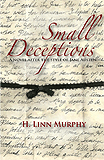Tuesday, December 25, 2012
What I Want to Hear
I've been contemplating a few things this season. It's been a difficult time. In life's roller coaster, this has been a plunge month. I fought it the whole way, railing against the status quo. I have wanted things to be different for a while. But if you expect different outcomes from doing the same thing, you're kicking holes in your own boat. Sometimes you have to come out of your Happy Place and let real life people step up to the plate.
So this is the thing I've been thinking about today, along with the ordinary feelings of annoyance at getting four hours of sleep on Christmas eve and cleaning up from the pageant and feast by myself:
What I would love to hear:
From my Husband:
-I want to hear that he can't live without me--that life would be empty and color-less without me.
-I want to know that he thinks I'm pretty in at least some way.
-"I'm so proud of you! You are so talented and you make our home glow with love and warmth and interesting things."
-"You add so much more to our lives than anything you do that is annoying."
-I want to hear that he understands me and cares about what I have to say.
-If I was down, he'd ask me how he could help.
From my children:
-"I love you, Mom. I appreciate all you do for us."
-"I've cleaned my room. Is there something else I can do to help?"
-"(Sister or Brother) and I are going outside to toss a ball (or practice a song together or any number of other things.)
-"Mom, you're right."
-"Can you show me how to do__________?"
-"I'm thankful for the things you teach me."
-"I'm so proud of my mom!"
From others:
-"That Heidi Murphy is a truly decent sort and a great friend."
-"Wow! That was a FANTASTIC book! I'm buying a few to give away and telling all my friends."
-NOT "I never knew you could draw, paint, write, or sing" (which is what I get all the time).
So this is the thing I've been thinking about today, along with the ordinary feelings of annoyance at getting four hours of sleep on Christmas eve and cleaning up from the pageant and feast by myself:
What I would love to hear:
From my Husband:
-I want to hear that he can't live without me--that life would be empty and color-less without me.
-I want to know that he thinks I'm pretty in at least some way.
-"I'm so proud of you! You are so talented and you make our home glow with love and warmth and interesting things."
-"You add so much more to our lives than anything you do that is annoying."
-I want to hear that he understands me and cares about what I have to say.
-If I was down, he'd ask me how he could help.
From my children:
-"I love you, Mom. I appreciate all you do for us."
-"I've cleaned my room. Is there something else I can do to help?"
-"(Sister or Brother) and I are going outside to toss a ball (or practice a song together or any number of other things.)
-"Mom, you're right."
-"Can you show me how to do__________?"
-"I'm thankful for the things you teach me."
-"I'm so proud of my mom!"
From others:
-"That Heidi Murphy is a truly decent sort and a great friend."
-"Wow! That was a FANTASTIC book! I'm buying a few to give away and telling all my friends."
-NOT "I never knew you could draw, paint, write, or sing" (which is what I get all the time).
Tuesday, December 11, 2012
The Camera
Elder Jones had never been what you'd call middle class. His father had died when he was little, leaving his mom with eight children to support alone. The farm work had been endless and excruciating.
Cade Jones had had to rise before the sun even thought of climbing out of the mountains. There were rabbits to feed and water, goats to feed, water, and milk, chickens to feed and water, and eggs to gather. Then he started in on the horses: feeding, mucking stalls, forking in hay and bedding chips, blanketing and un-blanketing.Then there was seminary and school. After school and homework, the farm work began all over again.
It had been a small miracle that Cade's mother could even afford to let him go on a mission. She'd had to go without almost every non-necessary purchase to save the money. Being without her eldest son for two years was going to be a huge trial.
I'd had everything: a nice car in high school, a full-ride scholarship to Yale, and my mission paid for in full by my grandfather. I'd never had to work a day in my life if I didn't choose to. I'd helped my dad out sometimes for fun, but when the guys got together to play football or go to the movies, I was out of there.
I'd come on my mission mainly because that was what was expected of me. It was just something we did in our family. So when I got my call to Chile, I went, wearing my designer suits and carrying my designer luggage and a really nice camera. I had it made, gear-wise. Every month or so, my mom sent care packages full of money, goodies and fresh clothing.
When I met him, Elder Jones was one of those quiet Idaho farm boys who said next to nothing, but had a ready smile. He had a heart the size of his home state. I could feel his spirit rising to the surface every time he bore his testimony of the divinity of Christ. His quiet assurance put my weaker testimony, gained in the mission field, to shame.
His one fervent wish was that he could save enough money from the pittance his mother sent, to buy himself a little digital camera. To this end, he decided to forgo every extra snack. I thought he'd never be able to last long enough. When I went out for ice cream, he'd just smile and wait patiently while I polished off my snack. He even put newspaper in his hole-shot shoes to stave off the need to buy another pair, so he could add that money to his camera fund.
Slowly the jar filled with coins until at last there came a day when he felt he had enough to buy his much-longed-for camera. His eyes gleamed with joy as he filled a bag with his hoard of money. We were going down to the shop to buy his camera! There was a spring in his step as we walked along. He talked glowingly about all the people and places he'd photograph to send back to his family. They were going to get a proxy treat to be able to see lands and faces they'd probably never see in real life.
On our way to the shop, we decided to stop in at an investigator's house to see how his family was doing. Elder Jones thought at first we should go there afterwards and he'd take their picture, but something changed his mind.There was a tense set to his shoulders as we turned into their yard.
We stepped into the darkened little hovel, finding a much-subdued family.
"We just found out our little boy has a very bad disease," Senor Mendoza stated sadly. "He won't live until the end of the year if we can't get an operation for him." We looked at the emaciated little body of their son and I had to agree. He was obviously very sick.
"Will you give him a blessing?" Senor Mendoza asked. I didn't think it would help, but Elder Jones was quick to agree.
"It'll make all the difference," he said.
I looked around their tiny tin-roofed house. There was no way they would ever be able to afford that operation. I couldn't even see how one blessing would work. But I dutifully helped him bless their son. Afterwards, we left, giving them as much encouragement as we could.
We walked down the street towards the shop. Now and then Elder Jones stopped and stared at his bag of coins. Just as I was going to nudge him back to action so we wouldn't be late to our next appointment, he turned and walked back up the street.
"Where are you going?" I asked him, aggravated at his pace.
He didn't say anything. I followed him clear back to the Mendoza house. When they opened the door, he gave them his bag of coins.
"This is for Frankie's operation," he said quietly. And then he turned and we walked home.
My jaw almost hit the ground. He'd saved so long for that money! There was no way he'd be able to save enough by the end of his mission. Suddenly I felt like I'd seen one of Christ's disciples walking at my side. I felt like I was unworthy to be anywhere near him. I, who had so much, had never even thought to open my wallet. I looked over at Elder Jones and wondered how he could have done such a thing. How could he have been so selfless in the face of his own want? I knew I'd never be the same again.
When we got home, I went and got my expensive camera with the bag full of extra lenses. It was such a tardy offering--small and shameful. Somehow the sacrifice wasn't nearly like the Widow's Mite his was. But it was a start. I gave it to him, almost wishing it wouldn't be so easy to replace as I knew it would be.
He almost wouldn't take it.
"No. You've earned this a hundred times over," I told him. "It's yours. You've taught me something worth far more than this ridiculous camera."
PS. The operation came just in time to save Frankie Mendoza's life. Their entire family joined the church because of the selflessness and love of Elder Jones.
Subscribe to:
Posts (Atom)












